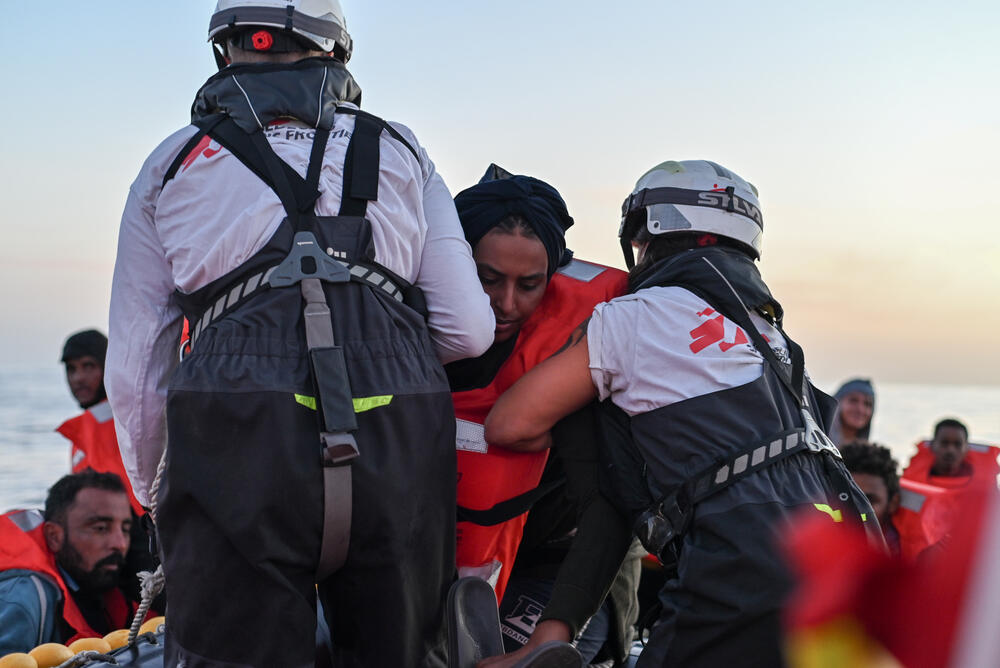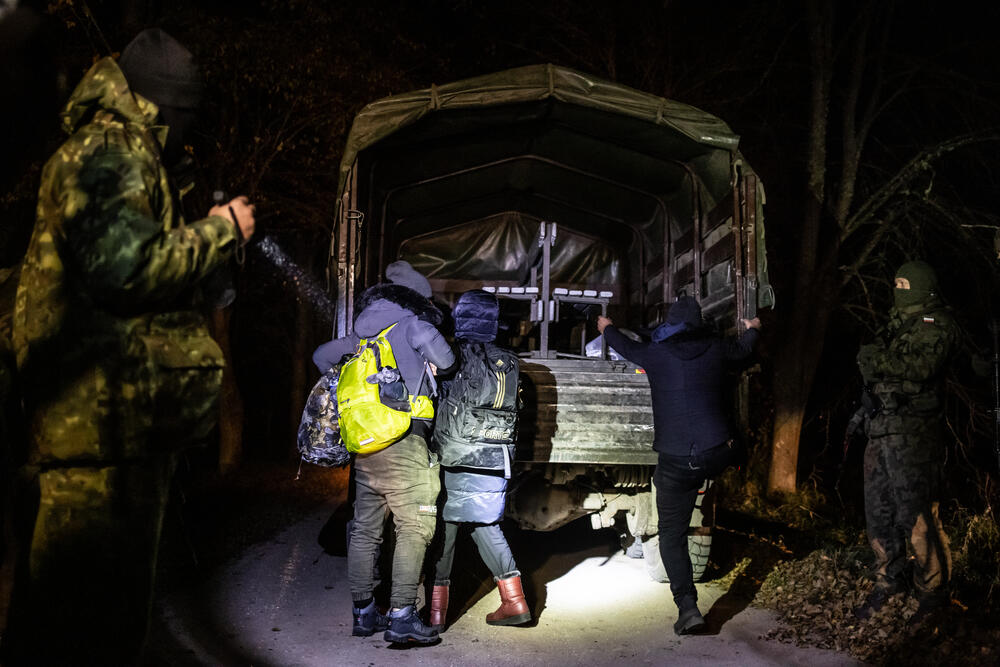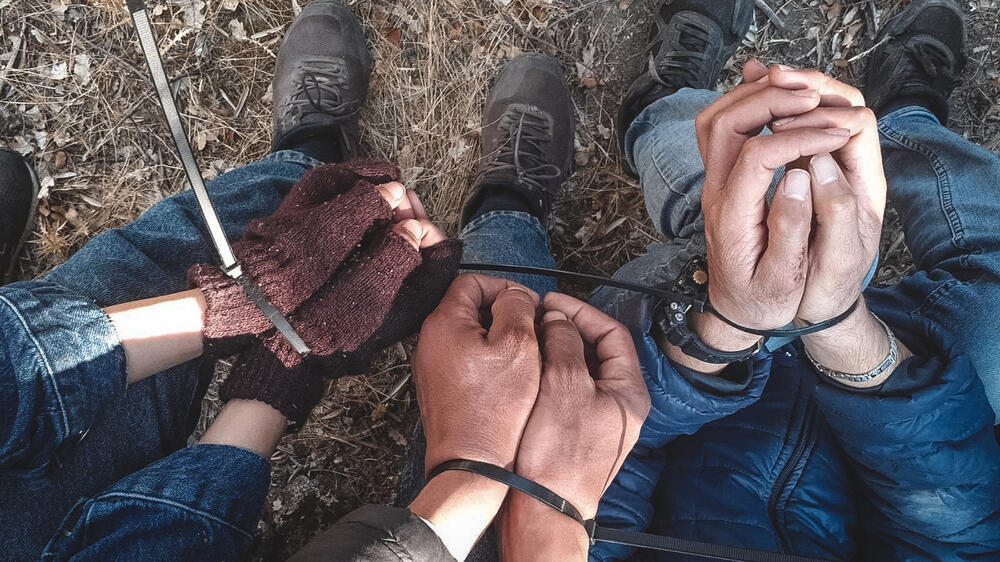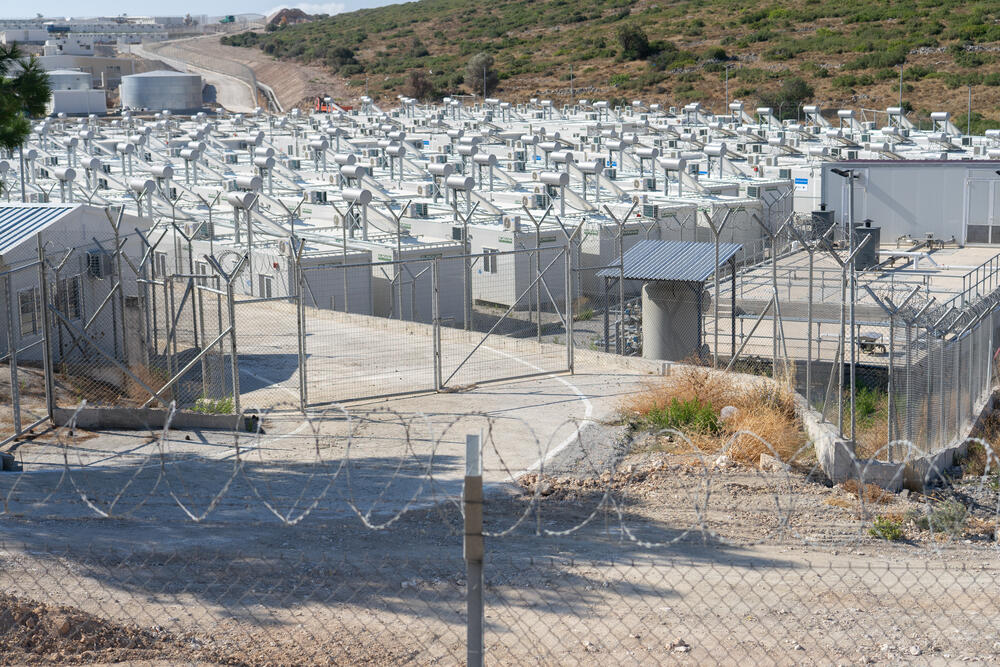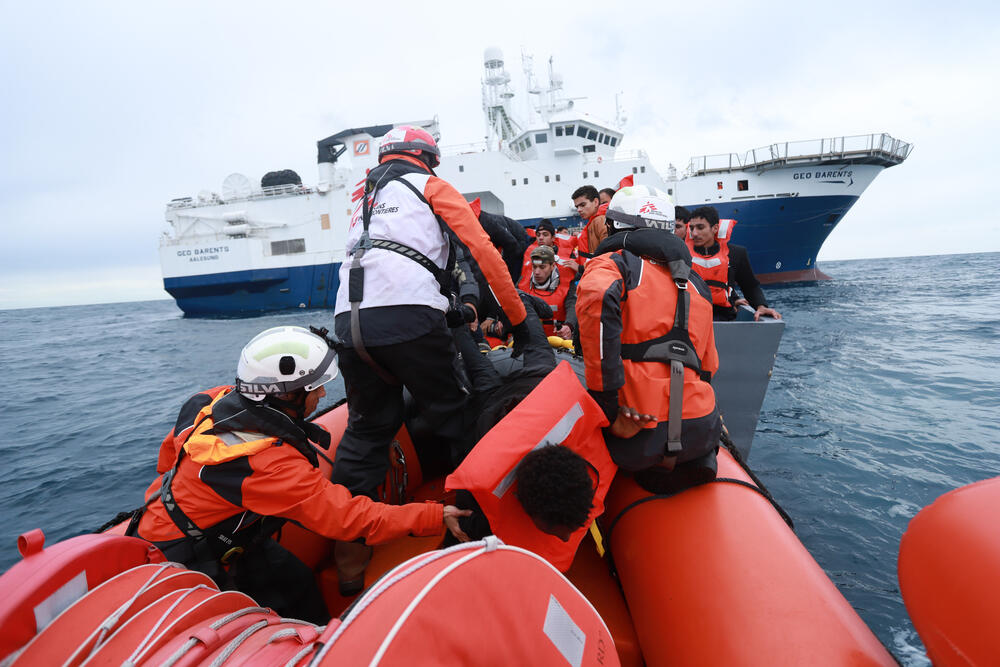EU migration: Four deadly policies being pushed by European leaders
Right now, more people than ever recorded are forcibly displaced from their homes – either by conflict, human rights violations, climate change or the economic consequences of the COVID-19 pandemic.
Worldwide, this represents an estimated 103 million people according to the UN, including 32.5 million living as refugees.
At the same time, across Europe, Médecins Sans Frontières / Doctors Without Borders (MSF) teams continue to witness people fleeing crises being left to drown at sea, intercepted and pushed back at borders, denied humanitarian assistance, and criminalised for seeking safety.
Instead of upholding their international responsibilities towards people at their doorstep, member states of the European Union (EU) continue to pass violent policies that cost lives.
In its response to the mass displacement that followed the war in Ukraine, the EU has shown us it is capable of creating and implementing a humane migration policy: the only thing lacking is political will.
However, the EU is actively eroding the asylum system and failing to provide meaningful protection to people seeking safety.
This is seen in its ‘Action Plans’ created for the Central Mediterranean and Western Balkans, the new Migration Pact legislation or the funding and outsourcing of harmful border practices to other countries such as Libya.
Across the EU, countries are going to extraordinary lengths to tighten control at their borders – Italy, for example, preventing departures of small boats while also criminalising civil search and rescue operations.
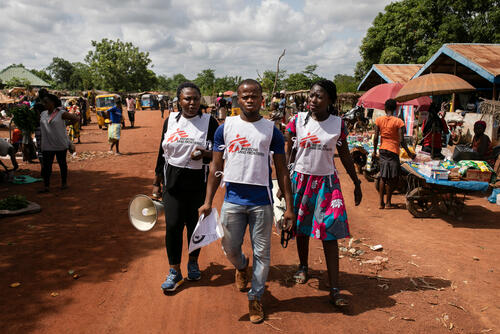
MSF and migration
Every day, MSF teams provide medical and psychological care to men, women and children who were searching for safety in Europe but instead found violence, inadequate living conditions and insufficient access to basic necessities such as food, water and sanitation.
“We call on EU leaders to put the protection of human lives first, and to provide dignified and humane treatment to the people seeking safety in Europe,” says Julien Buha Collette, Europe operations team leader for MSF.
“People’s medical needs and their rights to a fair asylum process must be respected and prioritised above all else.”
Here is a closer look at how the EU’s deadly migration policies are harming migrants across Europe.
1 | Border violence
MSF medical teams working along the Western Balkans migration route – which runs from Albania to Serbia, as well as along Belarus’s borders with Latvia, Lithuania, and Poland – are frequently seeing more people with injuries from attempts to cross the EU’s ever-expanding border walls and fences.
At the Poland-Belarus border and Serbia-Hungary border, we treat fractures, cuts and wounds caused by five-meter-high razor wire fences, while patients consistently report being physically assaulted and having their belongings stolen by border guards and police, or even attacked by dogs under their direction.
This violence occurs before being pushed back to the country they were trying to escape from in the first place.
“They removed my shoes and jacket, put a plastic cord on my wrists, pushed my face to the ground and beat me with sticks on my leg,” says a man from Morocco, speaking with MSF staff after he was attacked by border authorities in Bulgaria.
“They took my shoes, jacket, phone and money. They didn’t say anything but kept beating me and laughing.”
Elsewhere, in Greece, Italy, and France, MSF has heard stories from people who have experienced similar pushbacks on land and at sea.
2 | Ignoring international law
Instead of investigating and stopping border violence, EU leaders manipulate public narratives into so-called ‘crises’. They then criminalise migrants and justify actions that neglect their obligations towards people seeking safety.
These narratives drive the extraordinary measures that have been seized upon by various European member states such as Greece, Poland, Hungary and Lithuania.
Across the EU, leaders are not investing in increasing and improving reception facilities – for example with dignified living conditions. Instead, member states focus on restricting the number of people they allow to enter while outsourcing their international responsibilities to other (often less safe) countries such as Libya.
“Today, people that survive the deadly Mediterranean Sea crossing or the mountains and forests of Europe only do so to be subjected to undignified treatment when they reach EU soil,” says Julien.
“Across Europe, we’ve seen the normalisation of violence at their borders. On top of deaths at sea and violent pushbacks, we’ve heard reports of children locked up in shipping containers and teargassed in Hungary before being pushed back to Serbia. It’s inhumane.”
Through the stories MSF staff hear from their patients, we continue to witness the EU's complete disregard for international law. This includes the right to seek asylum, the obligation to render assistance at sea to people in danger, and the prohibition of inhumane, cruel and degrading treatment and torture.
“Before my first arrival in Greece, I experienced six pushbacks,” a man from Somalia told MSF teams in Greece.
“The most recent time, we arrived on Lesvos in the morning by boat. When we reached the shore, we split up and ran into the bushes. After many hours hiding, some men wearing balaclavas found me and threw away my jacket and my shoes. They beat us, loaded us on a plastic boat, and pushed us back to sea… back to Turkey.”
3 | The hotspot model
EU-funded Closed Controlled Access Centers (CCACs) in Greece are marketed as an improvement in living conditions for migrants arriving on the islands. Yet, in reality, they severely restrict people’s movement and keep them contained in prison-like facilities.
On the island of Samos, the CCAC is surrounded by barbed wire fencing and under 24/7 surveillance. People must enter through an X-ray machine and are identified by biometric data (such as fingerprints).
However, rather than learning from past mistakes, the EU continues to double down on the ‘hotspot’ model, which focuses on deportation and detention rather than assistance and protection.
If approved, new legislative proposals currently being pushed through the EU will replicate this model across EU countries, including fast-track asylum procedures which severely shorten the time given to process applications. This leads to the deportation of many people who have not had the chance for their cases to be heard fairly. On top of this, the age range for detention will be decreased to 12 years old.
MSF’s mental health teams in Greece continue to treat patients experiencing distress and trauma – many of whom are at risk of further traumatisation from these harsh restrictions and the rushed asylum process which instils fear and the threat of deportation back to danger.
At the same time, in France, Belgium, and the Netherlands, MSF is providing care to asylum seekers – including unaccompanied minors – who are sleeping on the streets as they have not been given access to safe shelter.
4 | Outsourcing harm
In 2022, approximately 23,600 people were intercepted by the EU-funded Libyan coastguard and forcibly returned to Libya. Here, migrants are at constant risk of being arbitrarily detained and subjected to crimes against humanity according to the latest UN report.
Already in 2023, more than 4,200 people have been forcibly taken back to Libya and 938 have lost their lives or are missing after risking the deadly route across the Central Mediterranean to Europe. It’s the most lethal four-month period since 2017.
“After entering Libya, we were taken to a prison,” a young man from Cameroon told MSF staff in Libya.
“I spent eight months there. They beat us very badly until we paid them. If we didn’t have any money, they called our families and demanded money from them to release us. They made our families listen on the phone while they beat us. Sometimes they even took videos of us being abused and sent them to our families.
“I had no money and no family; I spent eight months locked up and being beaten. I lost my sight in one eye after they beat me with a metal stick. They didn’t even take me to the hospital when this happened.”
Julien summarises the situation here:
“EU deterrence policies will not prevent tragedies such as the recent shipwrecks, nor will they stop people from attempting to seek safety, they will only expose people to even more perilous sea journeys.”
MSF, refugees and displaced people
MSF works around the world to provide refugees and internally displaced people (IDPs) with the medical care they need, from psychological support to life-saving nutrition.
Our teams conduct rapid needs assessments, establish public health programme priorities, work closely with affected communities, organise and manage health facilities and essential medical supplies, train local workers and coordinate with a complex array of relief organisations.
